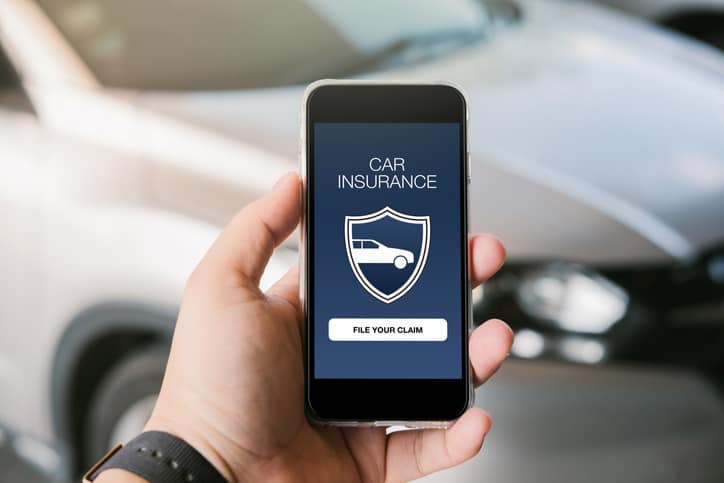What Happens If My Car Insurance Lapses?
Car insurance lapses can be a problem for any driver. You may not realize that your car insurance has lapsed until you have a problem. Other times, car insurance lapses because you purposefully don’t have a car for some time. Either way, it’s important to understand the penalties and potential problems if your car insurance lapses. Our Colorado car accident attorneys explain what happens if car insurance lapses.
What Happens If Car Insurance Lapses?
If car insurance lapses, you’re out of compliance with any state laws that require you to have car insurance. If your state has mandatory car insurance laws, you may face criminal charges and a fine. For drivers who are in a traffic accident without insurance, you’re personally liable for damages based on Colorado car accident laws. It may cost you more to get insurance when you finally go to purchase it. In addition, you may be in violation of your vehicle lease agreement if your car insurance lapses.

Is a Lapse in Car Insurance Bad?
Yes, a lapse in car insurance is bad, because several consequences may result. There may be a ripple effect of problems like charges brought by the state. The charges may result in a suspension of your driver’s license and fees for reinstatement. You can purchase insurance, but it might be more expensive, and it cannot be retroactive if you get in an accident without it. A lapse in car insurance is bad because it can result in a variety of fines and penalties as well as legal liability if you get in an accident.
What Is the Penalty for Not Having Car Insurance in Colorado?
The penalty for being uninsured in Colorado is a class 1 traffic misdemeanor. An offender faces a mandatory minimum fine of $500 for a first offense. In addition, the offender may receive four points added to their driver’s license. The driver’s license may be suspended completely until the driver can show proof of insurance. A second offense may result in a fine of $1,000 and a four-month driver’s license suspension. Penalties for a third offense for not having car insurance in Colorado include a $1,000 fine and an eight-month driver’s license suspension.
Penalties If Your Car Insurance Lapses in Colorado
Here are some of the consequences that may result if your car insurance lapses in Colorado:
Criminal Penalties and Fines If You Drive Without a License
Car insurance is mandatory for all drivers in the State of Colorado. Driving without valid insurance is a class 1 traffic misdemeanor in Colorado.[1] If you’re caught driving without valid insurance, you face a host of penalties, including:
- A mandatory fine of at least $500. You can get the fine reduced in half if you show the court that you subsequently purchased insurance.
- A fine of $1,000 for a second or subsequent offense
- 40 hours of community service
- A license suspension until you can show that you have insurance
- A mandatory license suspension for four months for a second offense and eight months for a third offense
- Four points added to your driver’s license
- Fee for reinstatement of your license
Paying out of Pocket If an Accident Occurs
Colorado is an at-fault driving state. When you cause an accident, you’re responsible for the damages. Usually, drivers turn to their insurance to pay damages. When you don’t have insurance, you don’t have that option.
Instead, you’re personally liable for the damages that you cause. The other driver can look to your personal assets if you cause an accident. If you have any significant assets, you may need to pay them to the other party. If you don’t have many assets, you may be forced into bankruptcy. When car insurance lapses, financial difficulties can have a cascading effect.
Paying More to Get Insurance
When you finally get insurance, the insurance company may charge you more for your policy. It’s legal for them to do so. Even if your insurance lapses because you don’t need it for a while, it can be more expensive to get insurance when you eventually purchase a policy.
Being out of Compliance With a Lease Agreement
Nearly all car lease agreements require you to have car insurance. If you don’t have car insurance, you’re in breach of contract for your car lease agreement. Being out of compliance with your lease agreement can create complications with your ability to retain your vehicle.
Filing for SR-22
If you’re caught driving without a license, you’re going to need to file form SR-22 in the future. Form SR-22 is a way for you to verify with the State of Colorado that you have insurance.[2] For driving without insurance, you may have to file the form for as many as three years in a row.
Not being able to produce insurance during a traffic stop is evidence that you don’t have insurance. However, you can have the charges dismissed if you can prove that you had insurance in place at the time in question. If you drive without insurance, there’s no way to get insurance retroactively.
My Car Insurance Lapsed, and I Had a Bad Accident
If your car insurance lapses and you have a bad accident, you face personal liability. You don’t have an insurance company that can step in and pay for your damages. Don’t forget that the laws still apply in the jurisdiction where the accident occurs.
In other words, if the state is an at-fault state, the other side can’t claim financial compensation against you unless you’re at fault for the accident. However, if your car insurance lapses and you have a bad accident, the other side may seek compensation from you personally, just like they may have sought compensation from your insurance.
Contact Our Experienced Car Accident Lawyers Today
If you’ve been in an accident, or if you’re in a situation involving a lapse in car insurance, call us for your free consultation. We can help you exercise your rights and protect your interests. Our skilled legal team has the experience to help you if you have been in an accident and insurance issues are present. Don’t delay, contact Bachus & Schanker, LLC, today.
Sources
[1] C.R.S. § 42-4-1409
[2] SR-22 and Insurance Information. (2015, November 23). Retrieved 5 February 2020






